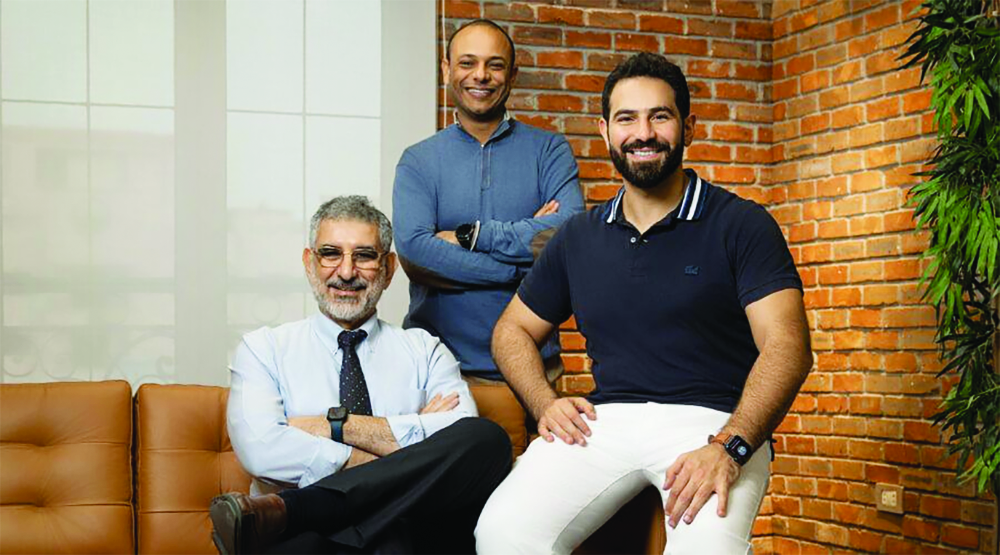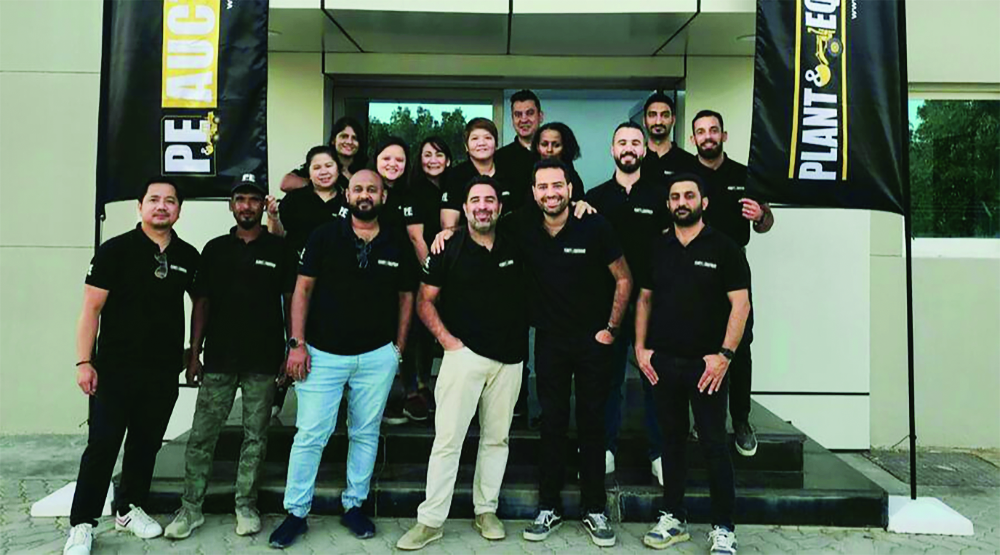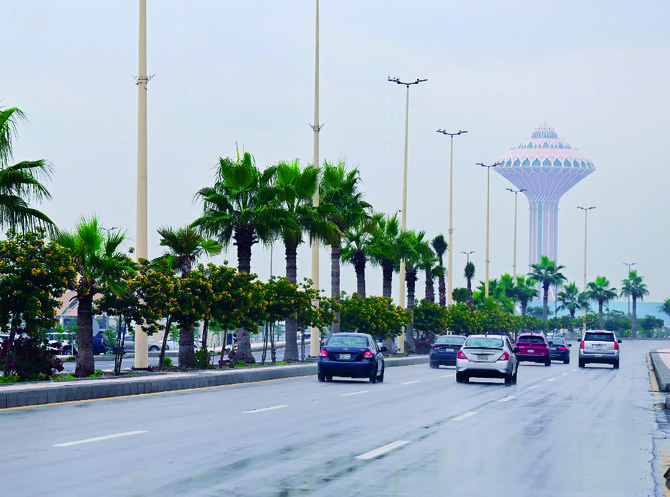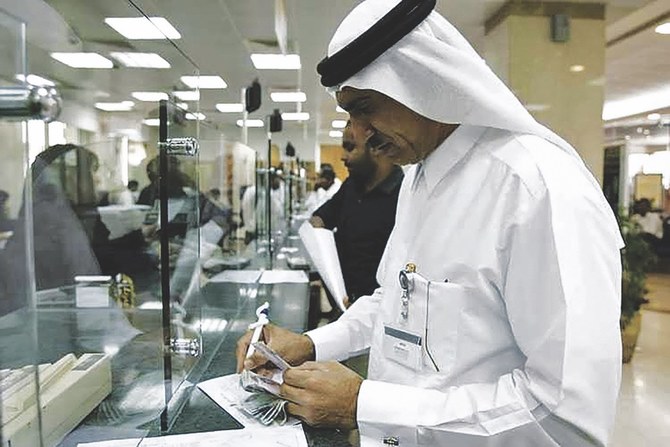CAIRO: The Middle East and North Africa region saw sizable startup activity from its top three regional ecosystems of Saudi Arabia, UAE, and Egypt as January came to end.
The Kingdom led this weeks’ movement with two startups raising significant funding sums. Saudi Arabia’s peer-to-peer car rental platform Ejaro secured SR12.3 million ($3.27 million) in a pre-series A funding round spearheaded by the Riyadh-based insurance company Tawuniya and several angel investors.
This fresh influx of capital is earmarked for bolstering Ejaro’s development and expansion strategies.
Founded in 2019 by Mohammed Khashoggi, the company provides car-sharing services to enable individuals to generate additional sources of income.
“Completing this funding round alongside our strategic partnerships reflects our commitment to innovation and meeting the needs of our customers. We are not only working to change the concept of car sharing in the Kingdom but also striving to be leaders in the insurance sector through cooperation with Tawuniya, Najm, and Absher, a pivotal step towards supporting economic growth and innovation in line with Saudi Vision 2030,” Khashoggi said.
Fahad bin Maamar, CEO of Investments at Tawuniya, underscored their confidence in Ejaro’s innovative approach to car-sharing, viewing it as a crucial partner in transforming the mobility landscape across the Gulf Cooperation Council region.
The platform claims to have facilitated over 25,000 days of trips, indicating a growing demand for its services. Moreover, it has enabled more than 100 hosts to collectively earn over SR2.5 million in less than two years, showcasing the tangible benefits and impact of its innovative car-sharing and rental solutions.

Founded by Abdullah Al-Jaberi in 2022, iStoria has quickly gained a substantial user base, surpassing 1 million learners globally. (Supplied)
Saudi edtech startup iStoria secures $1.3m in funding
Saudi Arabia’s educational technology sector continues to garner investor interest as iStoria secured SR5 million in a seed funding round.
This investment in the app, which specializes in English language learning, involved multiple regional players, including Saudi Arabia’s venture capital firms Nama Ventures and BIM Ventures, US-based edtech Classera, Egypt-based Flat6Labs, and various angel investors.
The investment will enable the enhancement of the app’s features and aid in expanding its global footprint.
Founded by Abdullah Al-Jaberi in 2022, iStoria has quickly gained a substantial user base, surpassing 1 million learners globally.
The company’s approach to English language education focuses on vocabulary building through reading stories at various levels, with comprehension questions and vocabulary tests.
This method prepares learners for global language tests and offers a continually updated and enriching learning experience. The company also achieved a satisfaction rate of 4.6 out of five in the app store. Its recent growth has been bolstered by expanding its services to organizations, including contracts with numerous private and public schools, where it has been integrated into educational curriculums, allowing for direct supervision.
“We are pleased with the conclusion of this investment round. Through this funding, we will continue to pursue our goal of enabling individuals to communicate effectively and confidently in English,” Al-Jaberi said.
He added: “We are optimistic and look forward to the next phase of the application’s growth and the impact we can create, primarily through offering services to organizations and expanding worldwide.”
The company also raised an undisclosed pre-seed funding round from Nama Ventures in 2022 to bolster its operations.
The edtech sector has emerged as one of the top five most-funded sectors in Saudi Arabia. In 2023, the industry saw a total of $50 million raised by Saudi-based startups, a 6 percent growth from the year before.
Furthermore, in 2022, the sector witnessed substantial growth, surging by 2,069 percent compared to the previous year.

Founded in 2018 by Mohamed Gessraha, Hassan Gessraha and Mohamed Sadek, Roboost provides AI-powered delivery solutions. (Supplied)
Egypt’s Roboost raises $3m to boost expansion
Egypt’s artificial intelligence-driven logistics startup, Roboost, completed a $3 million investment round led by Silicon Badia, with contributions from RZM Investment, Flat6Labs, and Saudi Angel Investors.
Founded in 2018 by Mohamed Gessraha, Hassan Gessraha and Mohamed Sadek, Roboost provides AI-powered delivery solutions in Egypt, Saudi Arabia, Kuwait, Morocco, and Tunisia.
The company aims to utilize its capital to further boost its regional presence with a new phase of expansion. The company currently serves leading brands such as McDonald’s Egypt and Kuwait, Buffalo Burger, El Ezaby Pharmacies, and Jumlaty.
Employing proprietary machine learning algorithms, Roboost’s innovation includes pre-delivery technology that enables precision auto-dispatching and smart routes for delivery personnel, optimizing the process for the substantial portion of orders placed offline.
The platform’s suite of tools also features real-time dynamic fleet payroll, and comprehensive customer insights through heat maps and analytics, all aimed at enhancing customer satisfaction. Additionally, Roboost’s AI fleet control offers advanced fraud detection capabilities.
The company claims to provide operational efficiency to its clients with a network of over 15,000 delivery drivers, serving nearly 10 million unique customers, and automating more than 40 million orders. The company says its solutions have doubled delivery speeds by reducing inefficiencies and achieved task automation rates of 99.8 percent.
Furthermore, Roboost has succeeded in decreasing order returns by over 80 percent and operational costs by 30 percent, while also improving average driver productivity by 40 percent and maintaining fraud levels below 5 percent.

Established in 2018 by Saleh Kuba and Zayd Kuba, Plant & Equipment operates as a marketplace in the construction equipment and machinery sector. (Supplied)
UAE’s Plant & Equipment acquires Global Equipment Trading
UAE-based construction technology company Plant & Equipment has announced the acquisition of Global Equipment Trading for an undisclosed amount.
Established in 2018 by Saleh Kuba and Zayd Kuba, Plant & Equipment operates as a marketplace in the construction equipment and machinery sector, facilitating connections between buyers and sellers. This strategic acquisition is set to bolster Plant & Equipment’s expansion efforts across the region.
The integration with Global Equipment Trading is expected to enhance the company’s service offerings and market reach, aligning with its growth objectives in the construction equipment industry.


















